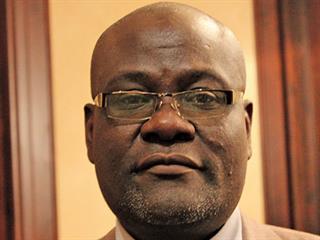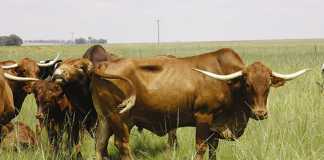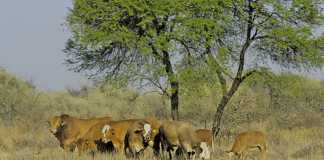
What is AFMA, what does the association do and whom does it represent?
The Africa Farm Management Association (AFMA) was first formed in the 1990s in Zimbabwe by stakeholders in farm and agribusiness management. Its mandate is to take care of the interests of farmers and commercial agriculture practitioners. I was elected president of the association in 2011 and played a part in reviving it after it went dormant in 2004.
At AFMA’s ninth conference, held in Cape Town last month, there were more than 150 delegates from, among others, Tanzania, Kenya, Rwanda, Nigeria, Mauritius, Burundi, Ethiopia, Cameroon and South Africa. The role of the association is to come up with solutions that can inform policy decisions by African governments that will help improve agricultural production and commercialise farming activities in Africa.
AFMA creates a forum for dialogue among key agriculture stakeholders so that they can share knowledge and experience from different parts of Africa. We believe that African problems can be solved by Africans themselves. For too long, people have thought that solutions to Africa’s development challenges can come only from the developed world. But we believe it’s a matter of bringing the right players in Africa together so they can share the best practices from their countries. In so doing, they will provide development solutions for other countries that might face similar challenges.
Is there space in the future for subsistence, smallholder and commercial farmers in Africa, or do you see a future where all farming is done on a large scale?
Commercial farming does not mean that the farm has to be big or large-scale. If you move across Africa, you realise that 70% to 80% of agricultural production is done by small-scale farmers who farm, on average, 2ha to 2,5ha plots.The general thinking globally is that Africa must lead in terms of increasing the level of global food supply because the continent has, by far, the most undeveloped arable land in the world.
Countries in the rest of the world have done much better in developing land and adopting technologies to utilise as much of the arable land available as possible, and to improve productivity. In Africa, a lot of land has not been put to useful production.
Although we have extremes as we move across Africa, in some parts, such as South Africa, farmers are doing as well as those in developed countries, if not better.
But we also have farmers who are doing poorly, using mediocre technology and not enough, or the right, inputs. There is much scope to increase fertiliser usage. For example, there is scope to expand usage of arable land that’s lying fallow and scope to train people and equip them with the skills they need to improve. There is room for large- and small-scale farming in Africa. Smallholder farmers cannot be ignored; we need mechanisms to support them.
In terms of development, we need to look for ways of ensuring that all players are given the requisite support to access inputs and to add value. By achieving this, farmers can earn a higher price for their produce while we create and retain jobs in Africa, rather than exporting them to the rest of the world.We must encourage even smallholder farmers to add value to their produce and, where possible, diversify, so that they can mitigate the risks associated with producing only one crop.
What positive developments have taken place in Africa over the past decade?
We’ve seen a number of farmers across Africa adopting new technologies that have increased production. A lot of African countries have changed from non-certified to certified seed. This has helped to substantially increase productivity. Unfortunately, most countries have not been able to reach their full potential. Across many countries we’ve seen reforms taking place in the agricultural sectors – some more successful than others – aimed at giving equal opportunities to all those who farm the land.
There are also many countries focusing, in particular, on empowering women in agriculture. Much of the work done on farms across Africa is done by women. For that reason, it’s very important for countries to offer inclusive support that will give women the opportunity to participate fully in economic activities.It’s encouraging to see the number of micro financing programmes established to support women farmers. Also, many governments are setting aside funds that are directly aimed at supporting women in agriculture.
What can SA learn from other African countries about agricultural development and vice versa?
South Africa can learn about the role that smallholder farming can play in uplifting the poor. On my visit to the country, I drove past a big squatter camp on the outskirts of Cape Town. The people who live there also deserve a good share in the national economy and one way to involve them is as smallholder farmers. They don’t need very large farms; it’s possible to have an economically viable enterprise for those sections of society that have been marginalised, on very small parcels of land.
They just need to get started and be equipped with the technical know-how needed to function as farmers.
Farming livestock or crops on as little as 5ha or less will help put money in their pockets. The idea is just to move people out of these slums around the cities to farms where they have an opportunity to engage in an economic activity that can contribute towards their household income. We must transform the minds of people so that they know that apart from just looking for jobs in the city, which are becoming fewer and fewer anyway, there is another option: farming. They must learn that agriculture pays. If they are properly trained and supported to become farmers they can contribute to national development.
There is much that farmers in the rest of Africa can learn from those in South Africa, especially in terms of how to benefit from economies of scale and how to integrate further up the value chain. A delegation from AFMA visited some farms in the Western Cape and I believe we saw some of the best farm practices available in the world today. The fruit and dairy farms we saw employed better production practices and farm technology than many of the farms I’ve seen in Europe. This just proves that we do not have to go very far to get lessons in best practices in a number of value chains. We just have to get Africans to interact with each other.
Do you think Africa and Africans have the drive and will to really see agriculture on the continent develop to its full potential over the next few decades?
I believe the future for Africa is very bright. If you visit Africans from across the continent on their farms, you realise that most people are entrepreneurial and very hard-working. But, some of them have been unable to achieve their dreams and goals because of limited resources. It’s just a matter of governments in Africa putting in place the right policies to ensure equitable sharing of the resources required for development.
A lot of effort needs to be made to persuade African governments to invest more in agriculture. Out of the 44 countries that agreed to the Maputo Declaration that 10% of each country’s budget should be allocated to agriculture, only nine have achieved this goal.
Email Prof Phillip Nyangweso at [email protected].













